What I Noticed Today (2 Samuel 19-21)
2 Samuel 19
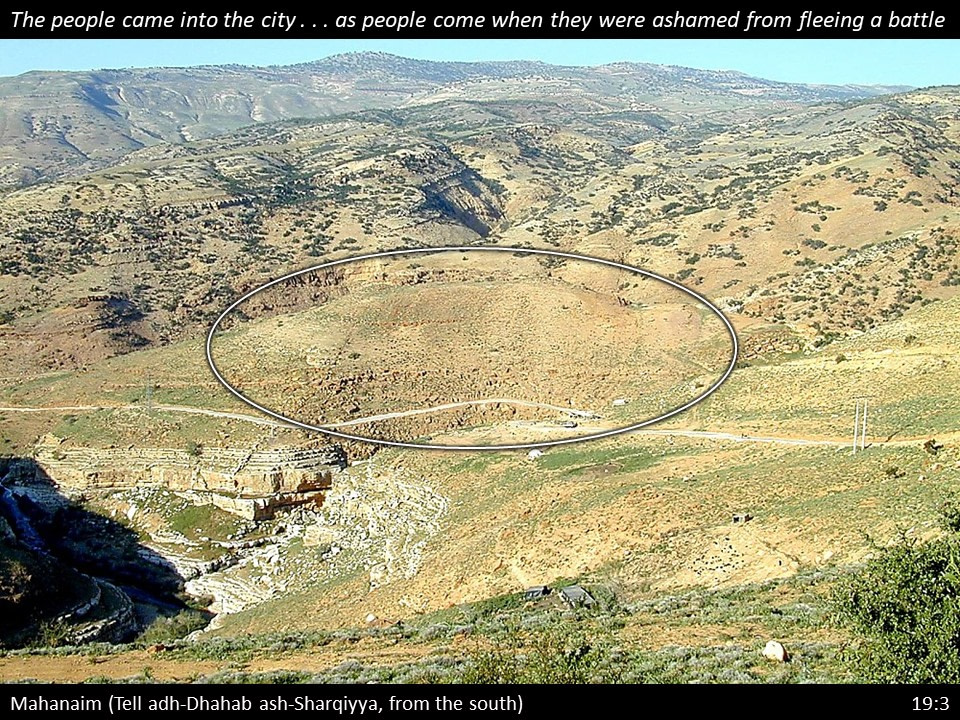
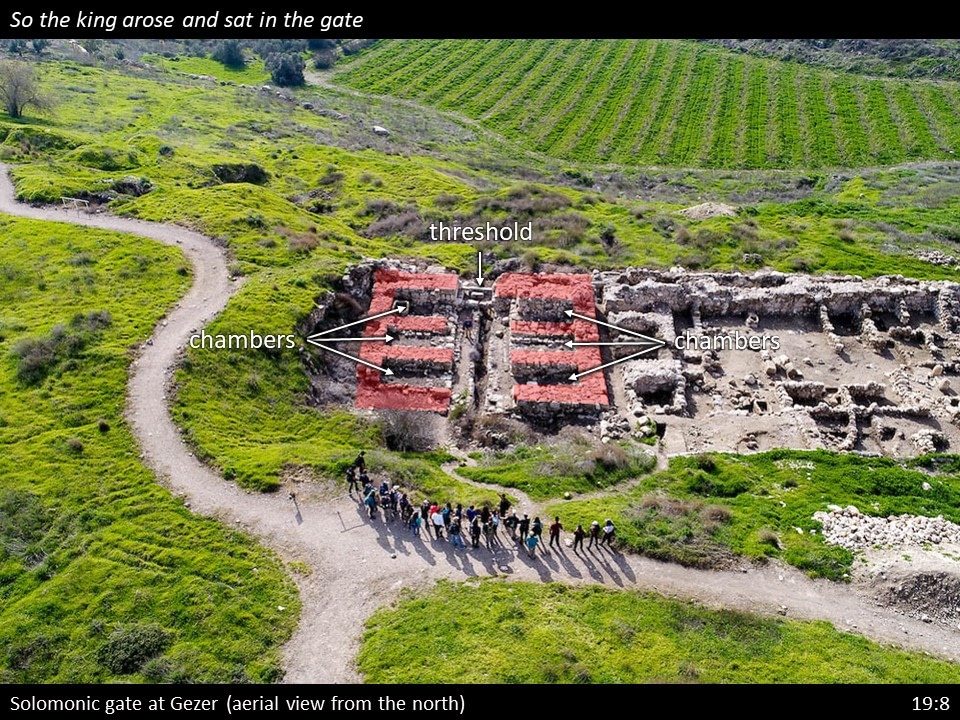
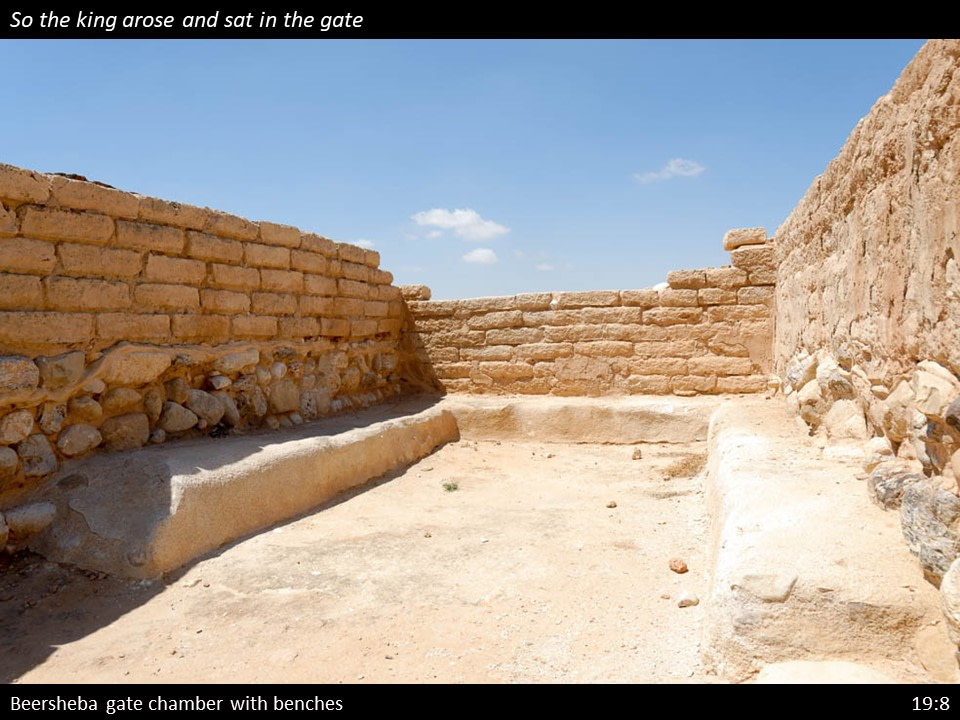
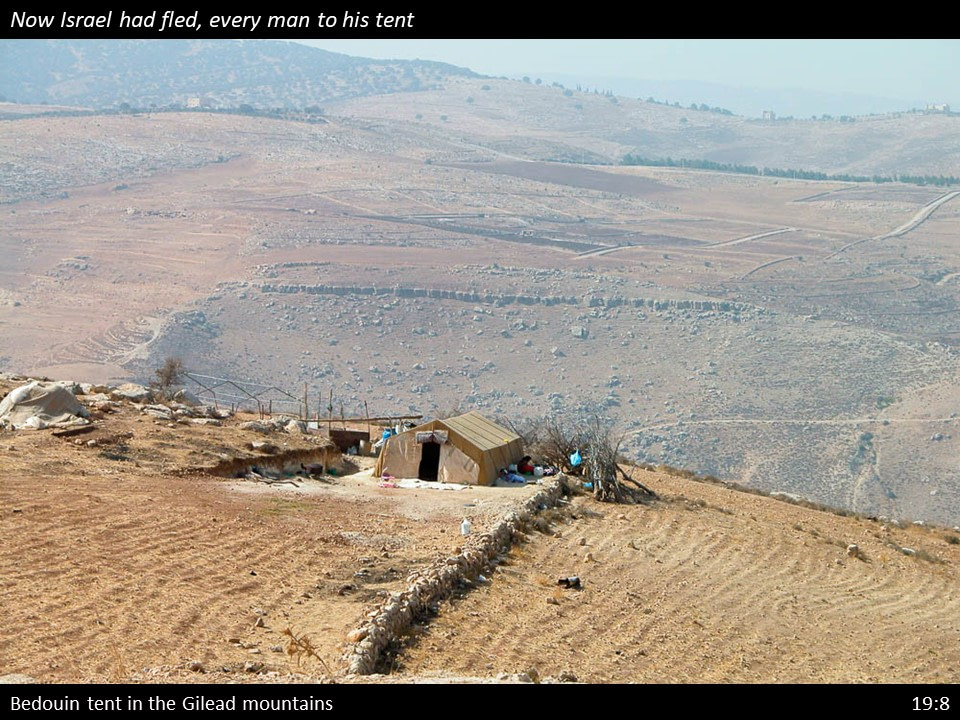
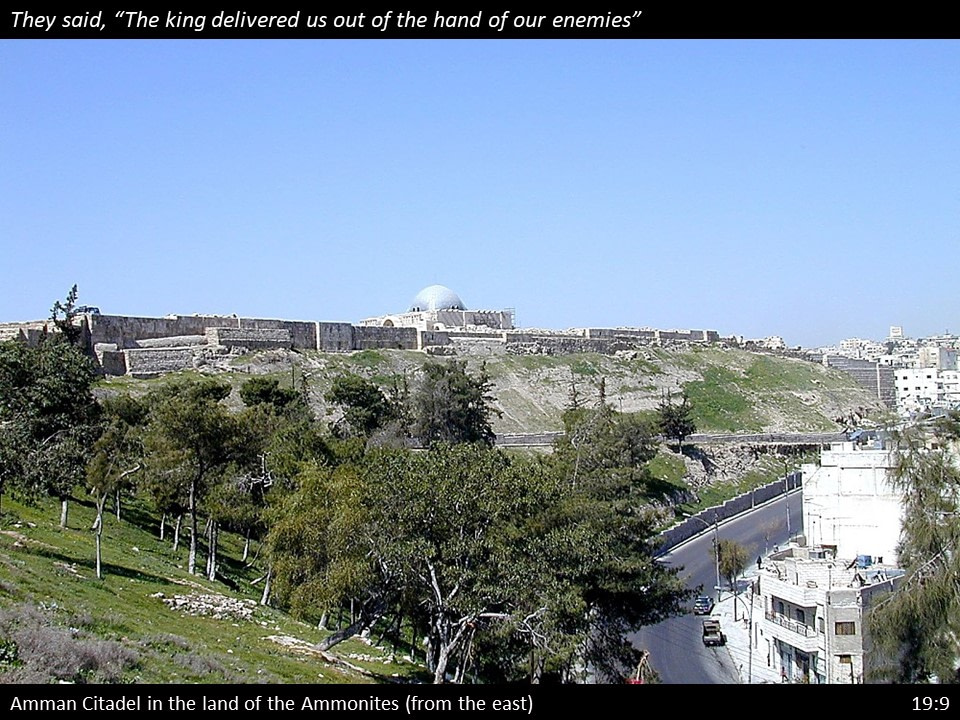
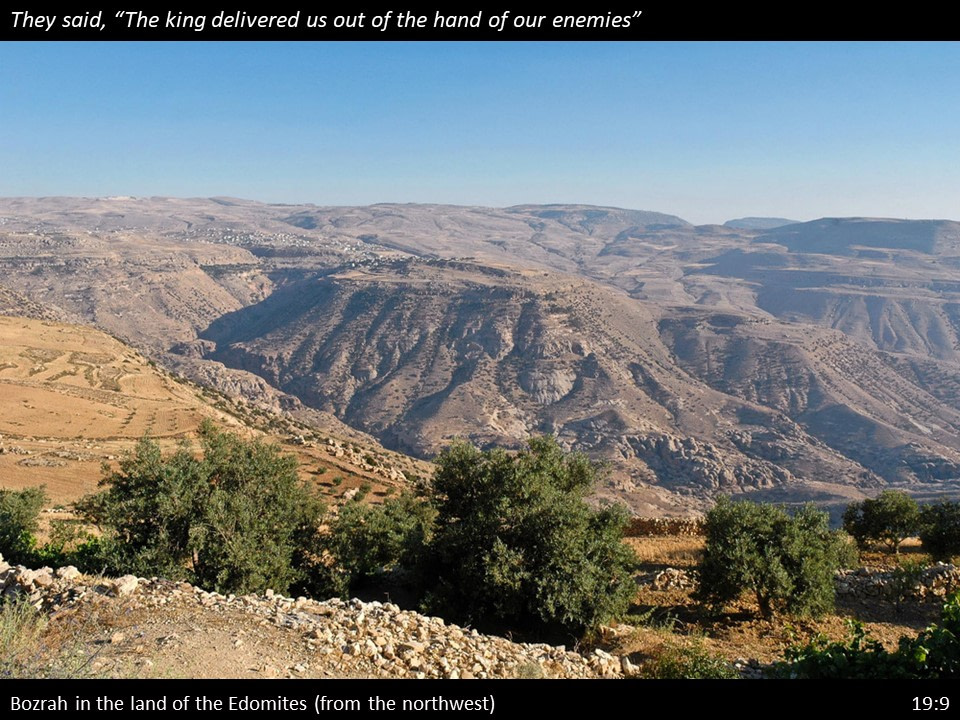
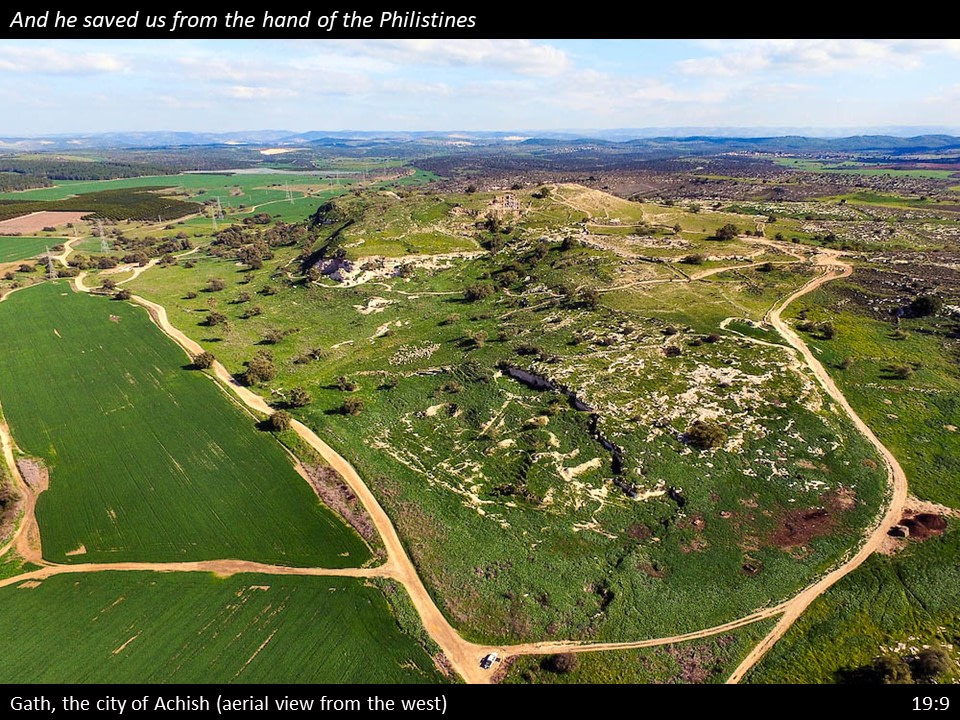
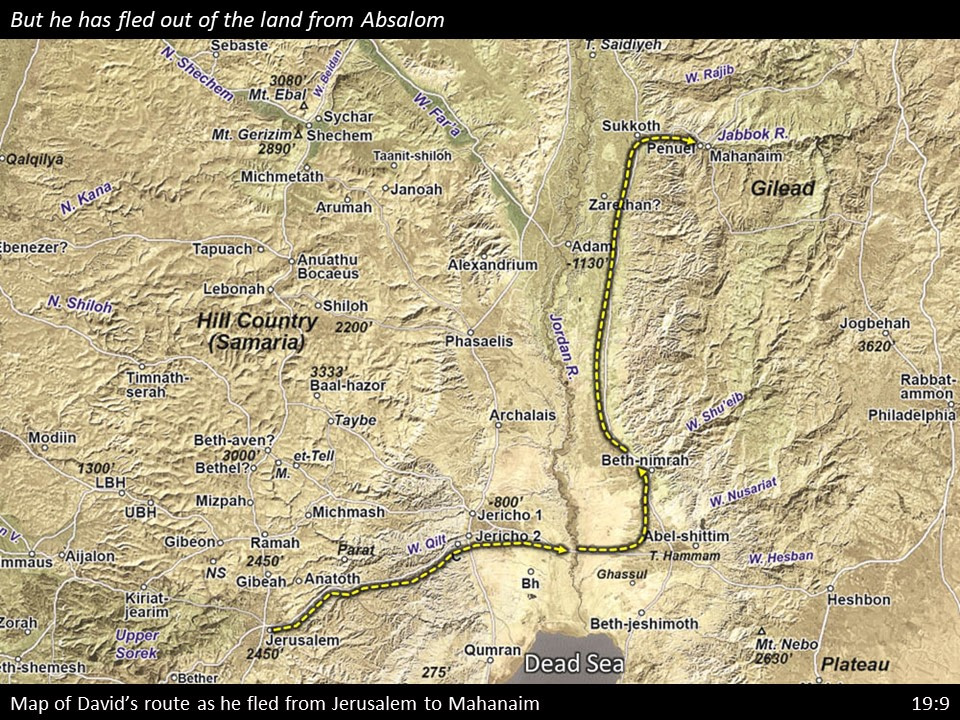
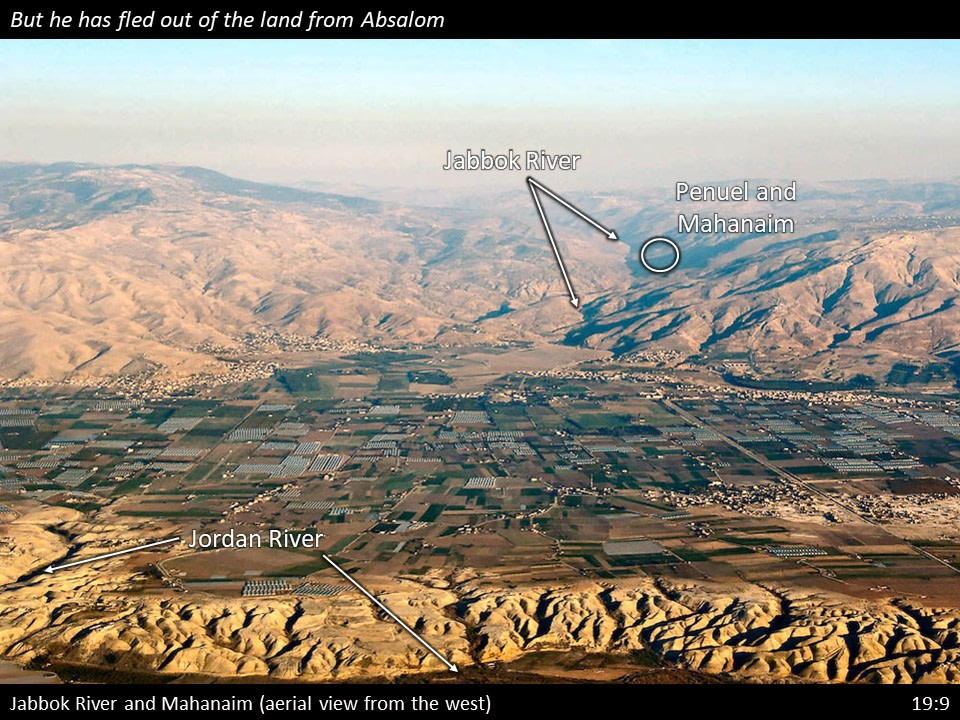
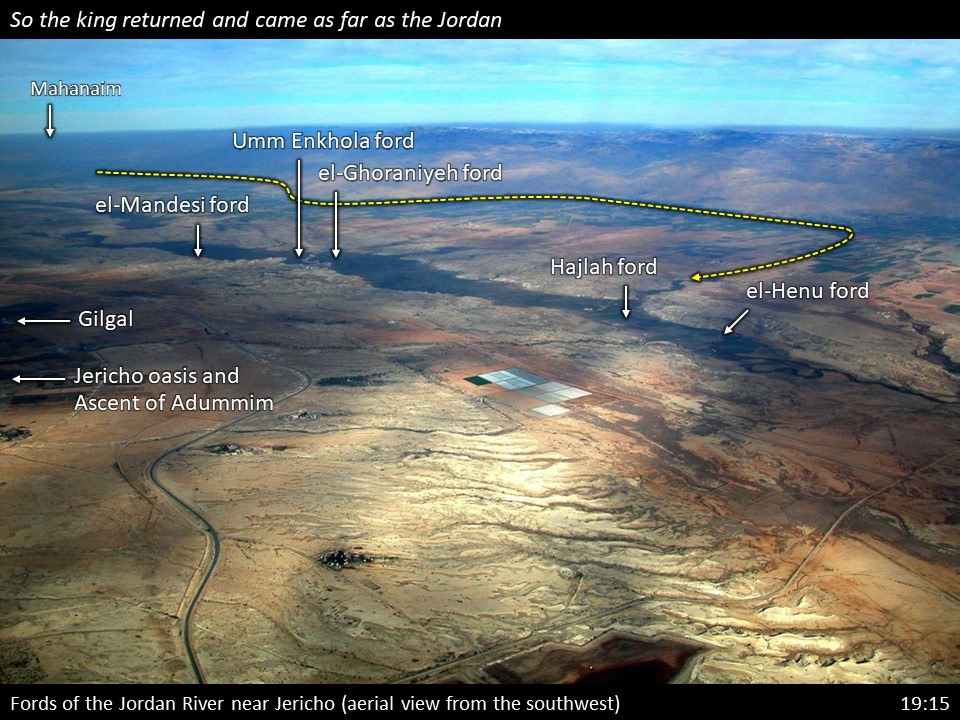
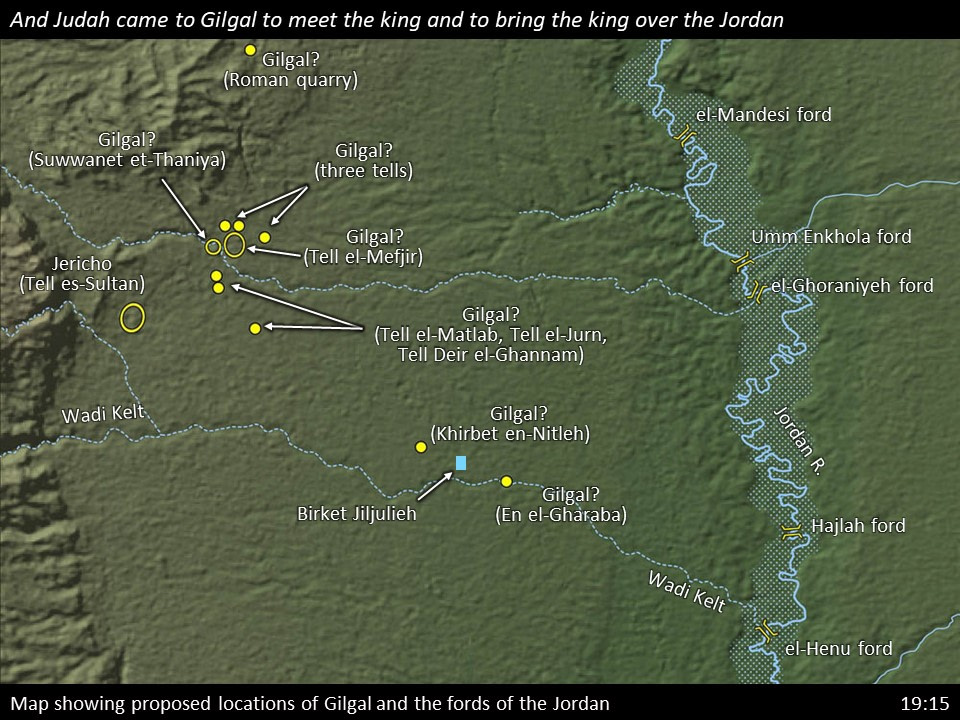
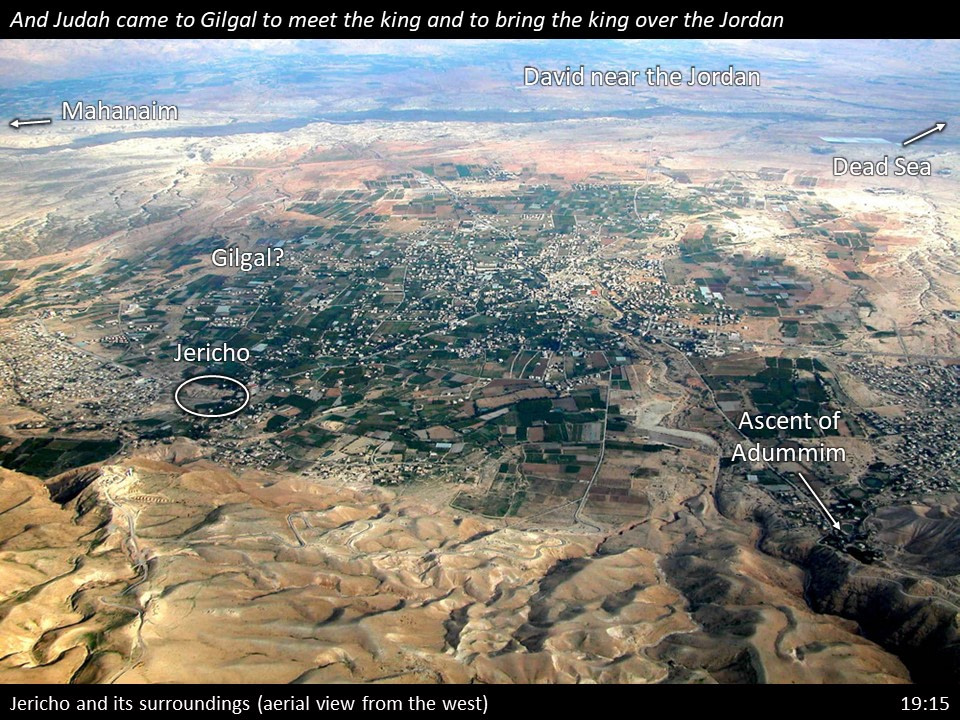
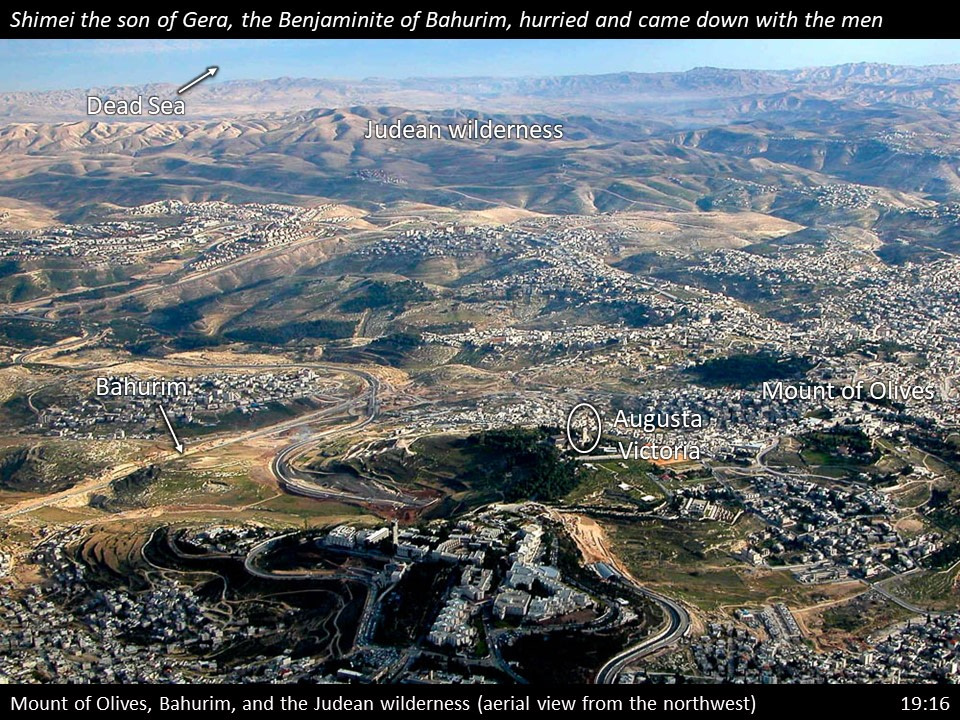
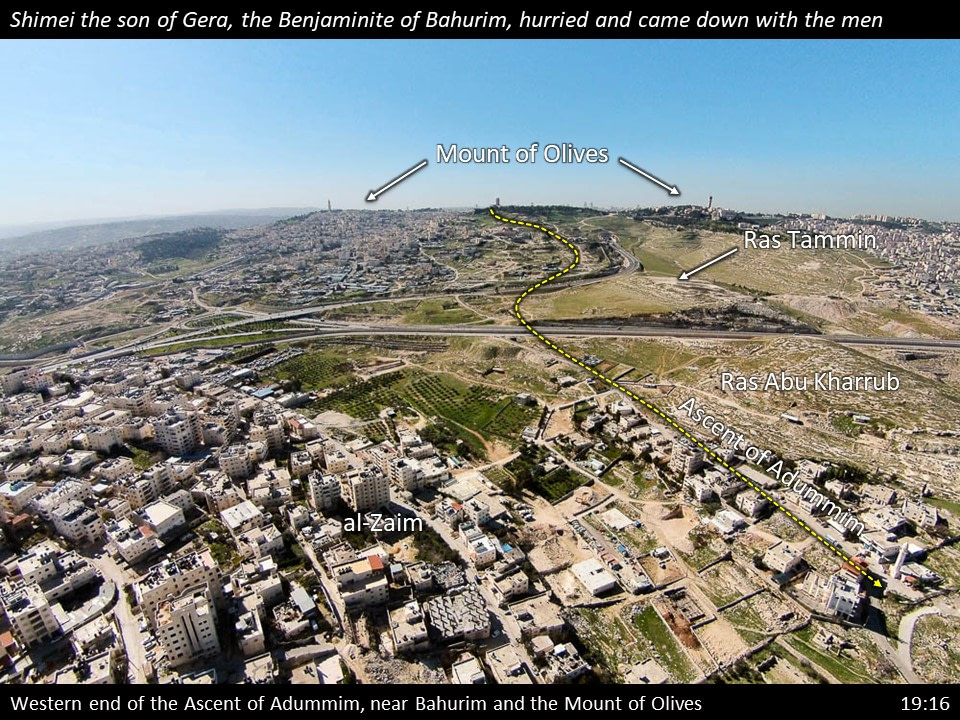
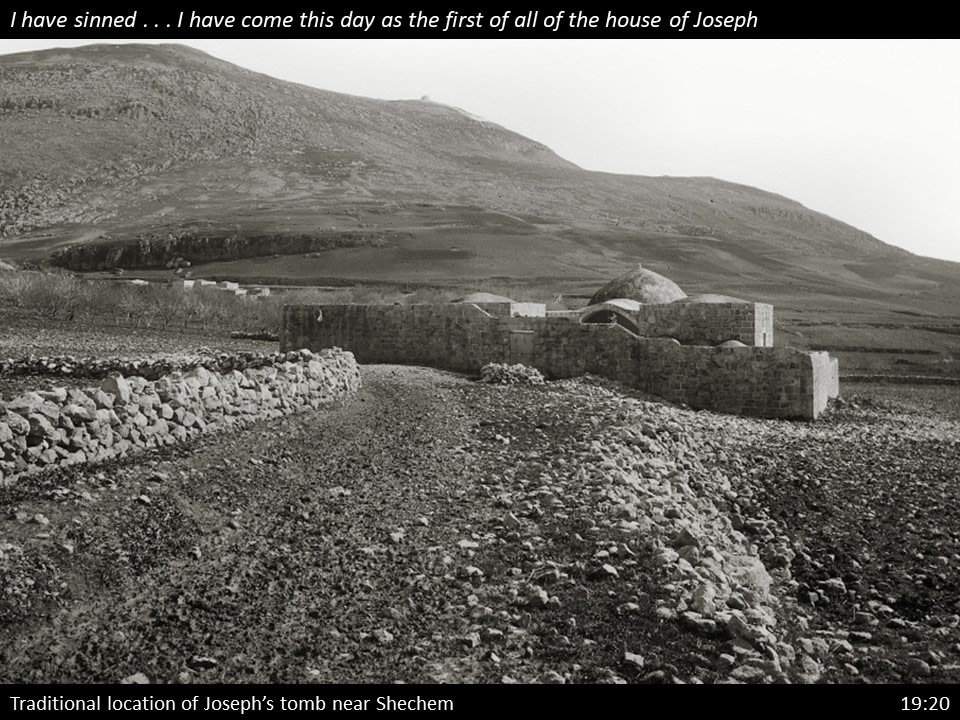
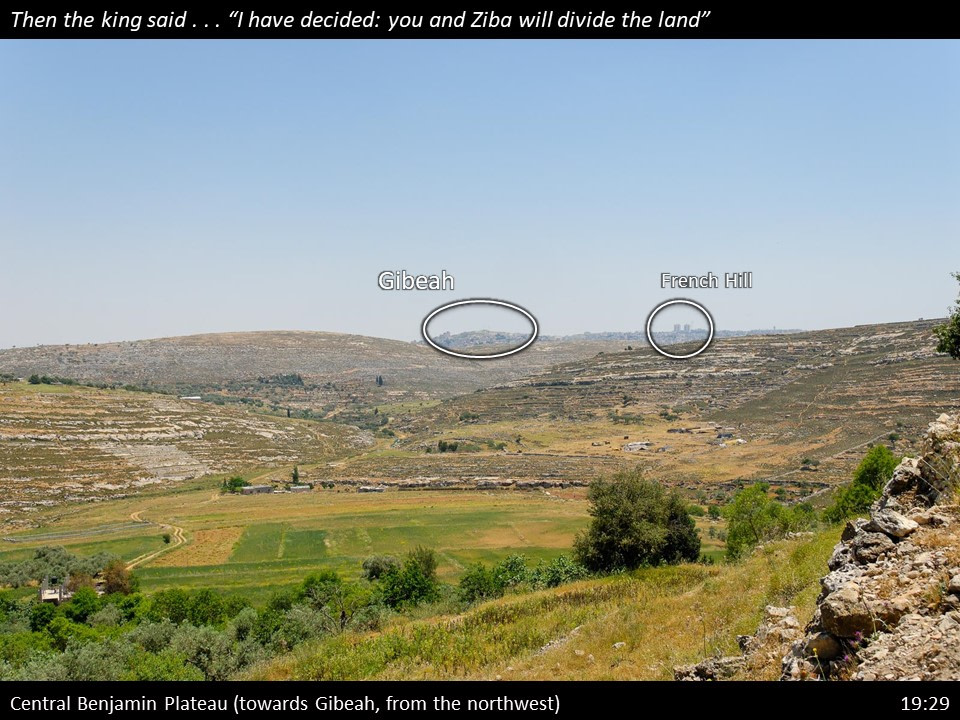
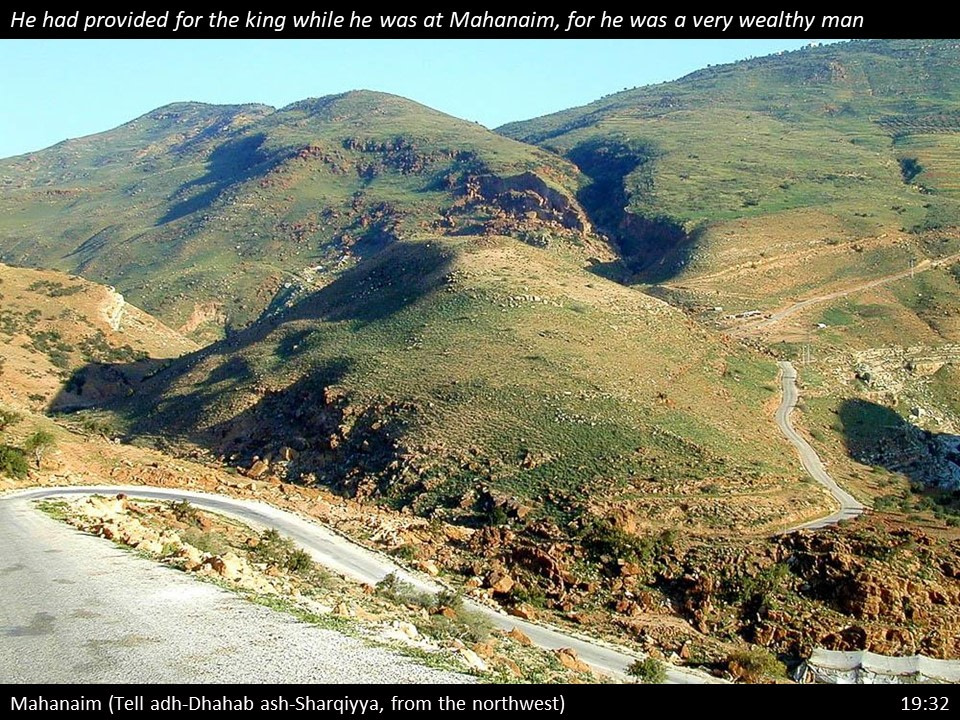
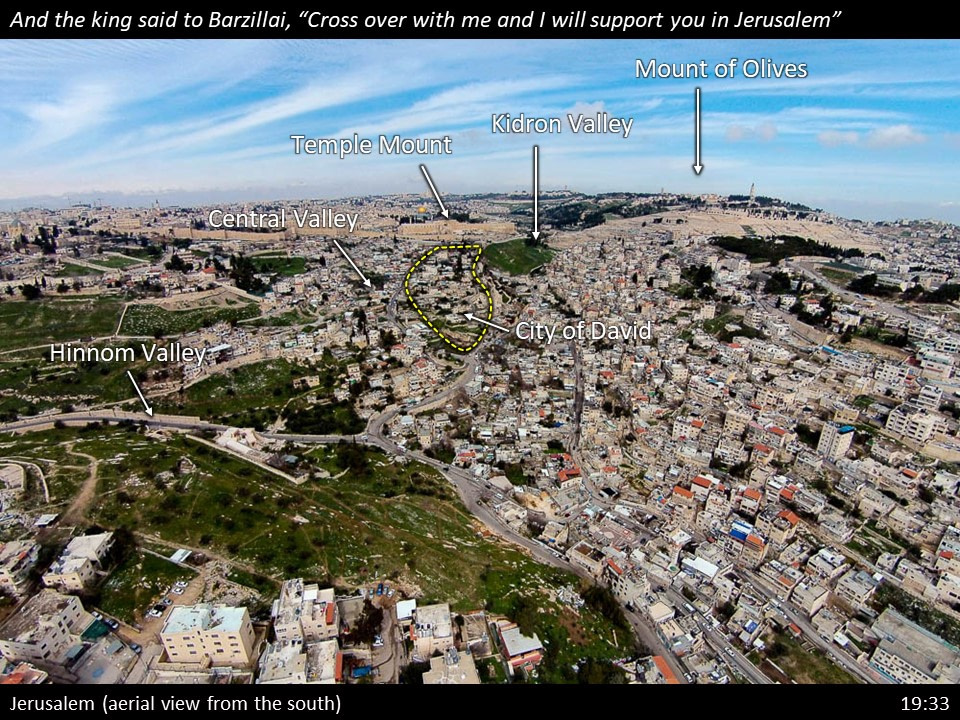
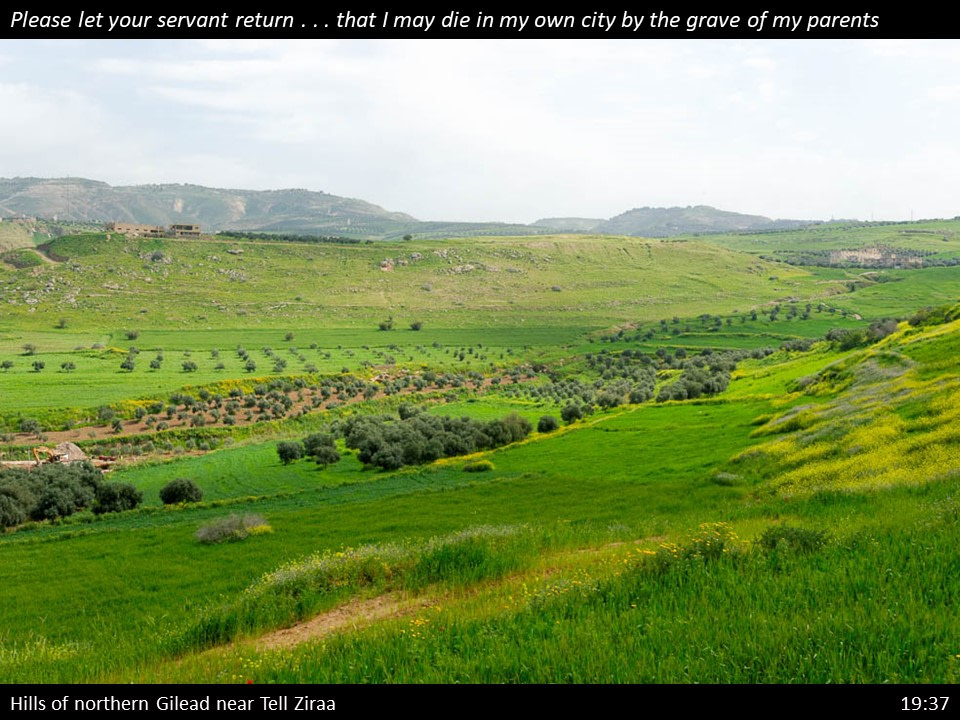
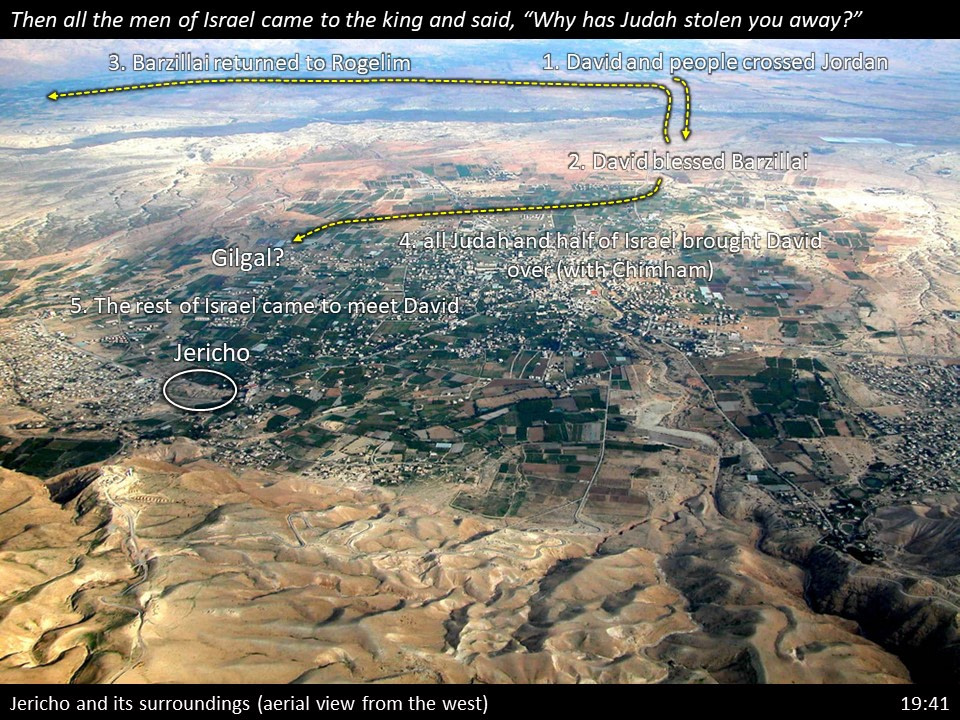
David is restored as King.
In verses 1-8a, David grieved the death of his son Absalom to the point that his army returned to Jerusalem as losers rather than as victors.
- Joab confronted David about his grieving for his traitorous son, Absalom.
- Joab urged David to appear before the people and encourage the soldiers who had risked their lives to retain David as King.
In verses 8b-13, the Israelite army that had followed Absalom returned to their homes.
- But the elders made no move to restore David as King even though he had delivered them from the Philistines and was victorious over Absalom.
- David sent word to the priests Zadok and Abiathar to go the elders of Israel and ask why they were reluctant to restore David as King.
- David attempted to reunite the people by forgiving those who had rebelled against him.
- David even promised to make Amasa commander over the army over Joab (Amasa had been Absalom’s general, 2 Samuel 17:25).
Note: David may have learned that it was Joab who had killed Absalom, so he replaced him as commander of the army.
In verses 14-23, As David was returning to Jerusalem, Shimei, who had cursed David when he left Jerusalem (2 Samuel 16:5-8), was first to welcome David back. Shimei begged David to forgive him for the things he said before. Abishai wanted to execute Shimei for speaking against David, but David said there was to be no more bloodshed this day.
Note: Shimei was killed sometime later because he violated Solomon’s edict in 1 Kings 2:36-46.
In verses 24-30, when David came back to Jerusalem, Mephibosheth came out to meet him.
- Mephibosheth had the appearance of someone who had been in mourning while David was gone.
- Mephibosheth explained that Ziba, his servant, had left him behind, and had lied to David.
- Knowing that Ziba had lied, David rewarded Mephibosheth by restoring half of his property but allowed Ziba to retain the other half.
In verses 31-38, Barzillai, the rich man who had helped David by providing for him, was invited to come to Jerusalem and be with David.
- But, because of his age, Barzillai declined, preferring instead to remain in his homeland.
- Instead, Barzillai asked that Chinham (also spelled Kimham) be given the honor.
- David agreed, blessed Barzillai, and returned across the Jordan.
In verses 39-43, as David and his men arrived at Gilgal, a group of men from Judah and Israel met them. The men of Israel argued with the men of Judah, wondering why the Judeans had taken David away secretly. The men of Israel said they had ten shares in the King (10 tribes) and were first to speak of restoring David as King.
Note: There is nothing in the record that suggests the claim of the Israelites about restoring David was true.
2 Samuel 20
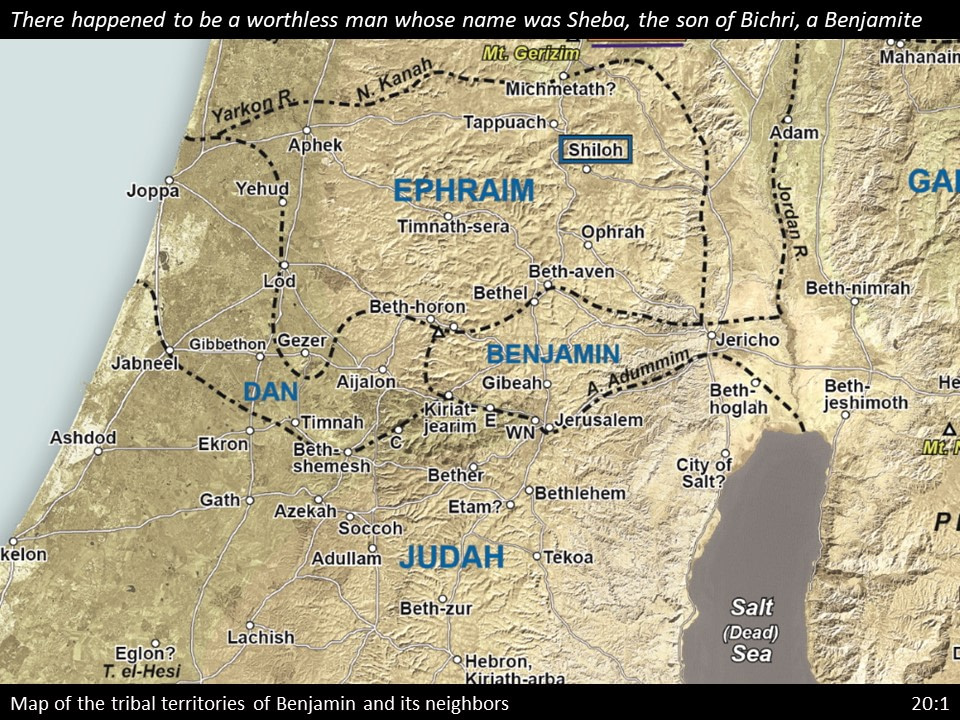
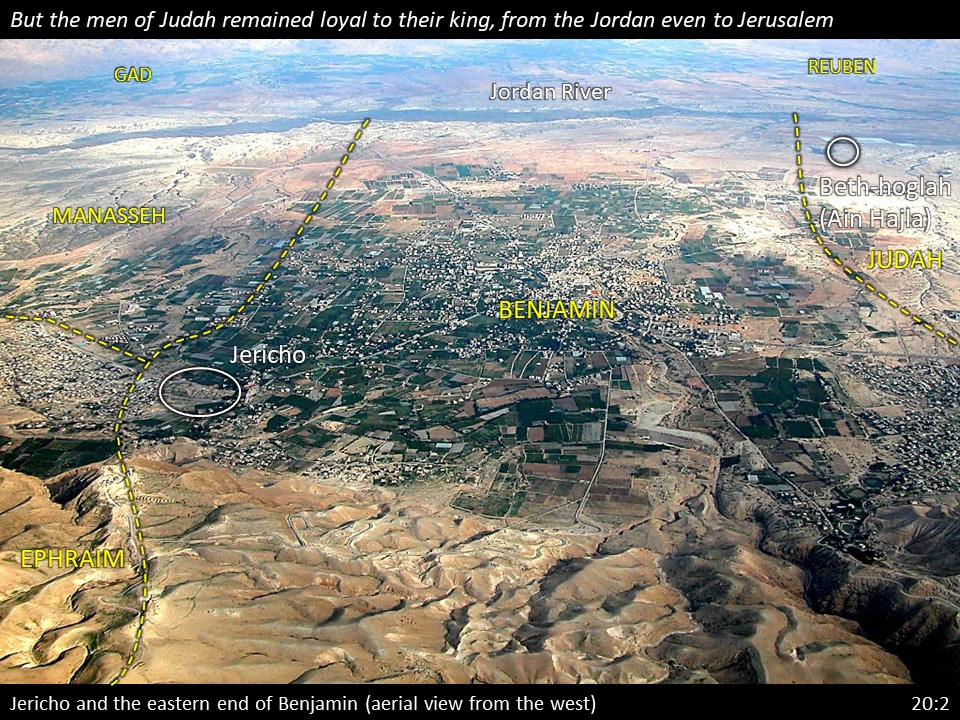
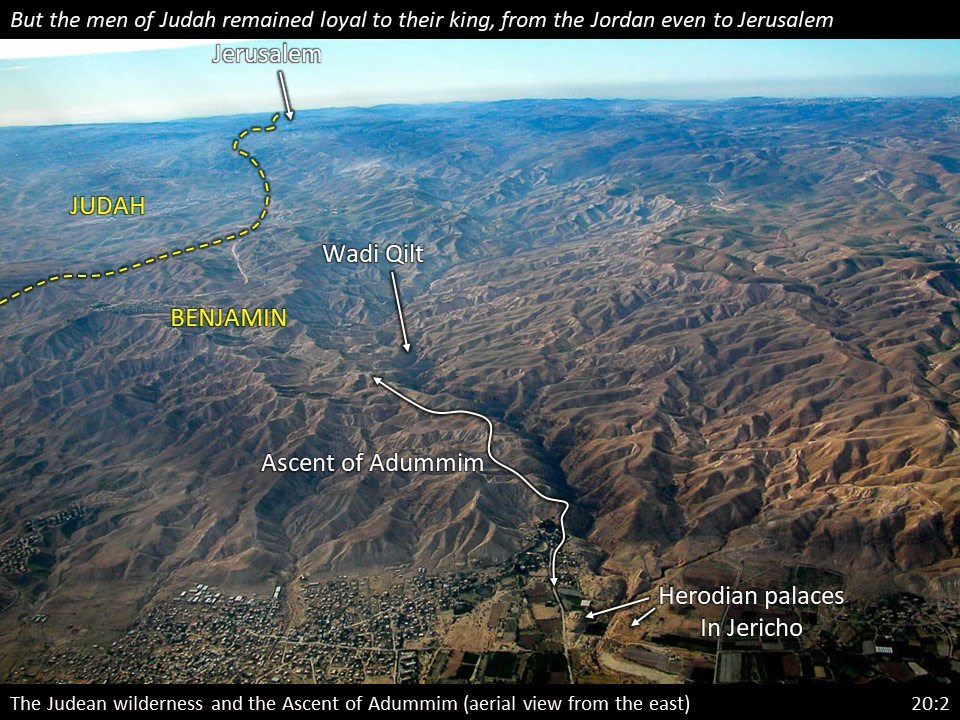
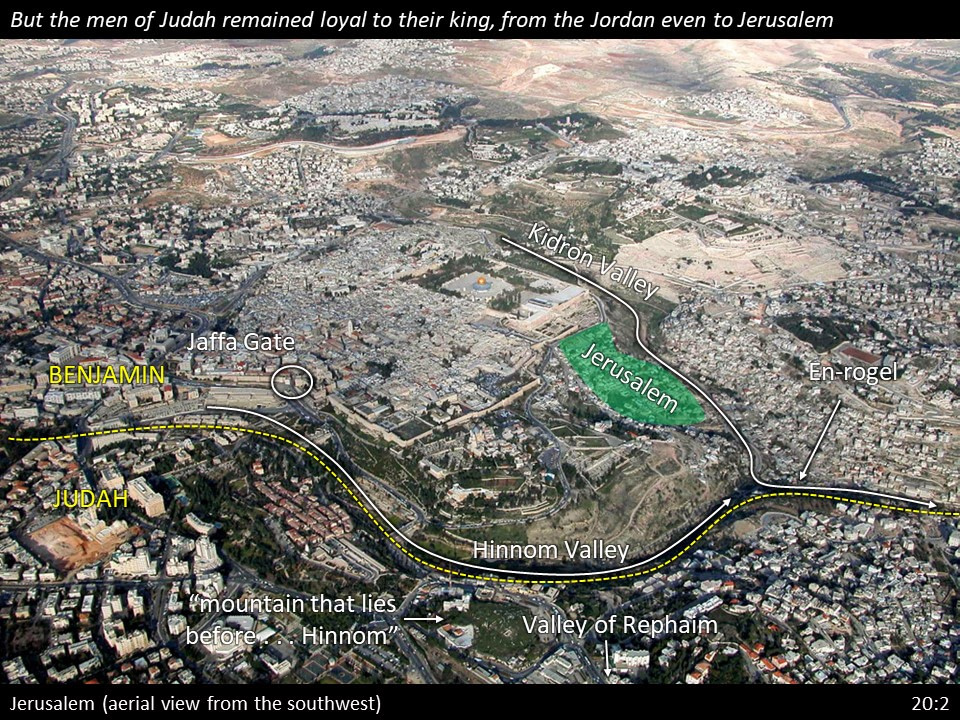
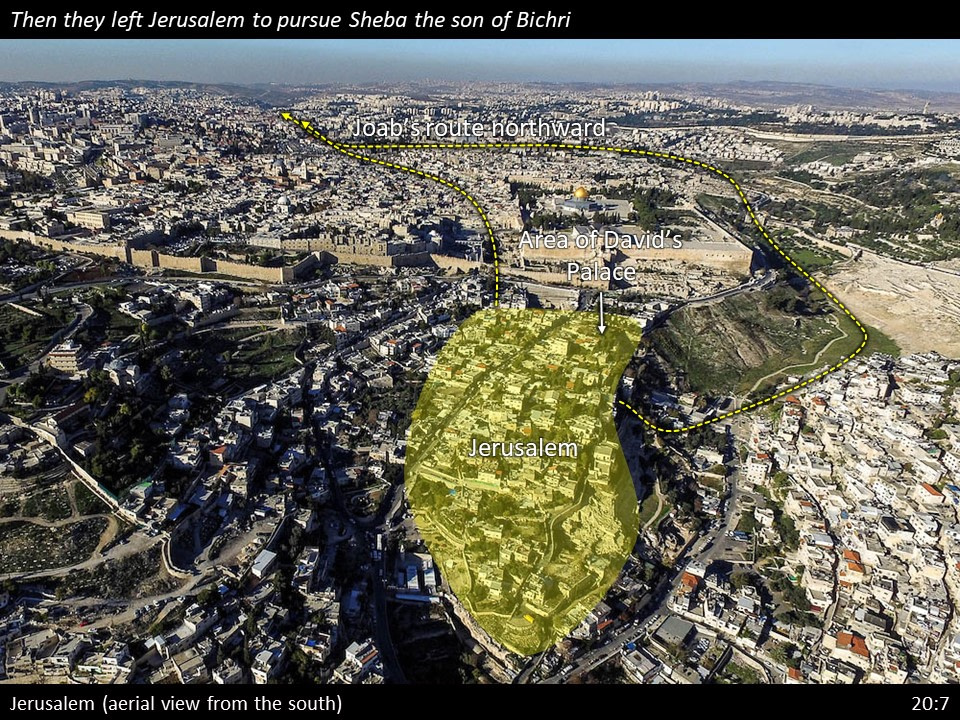
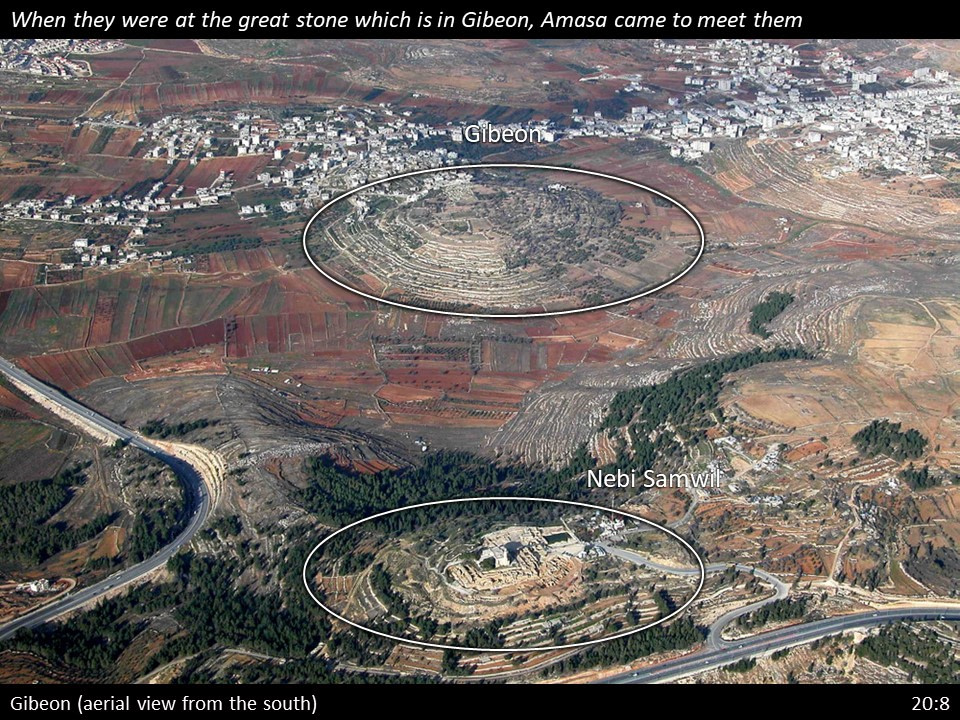
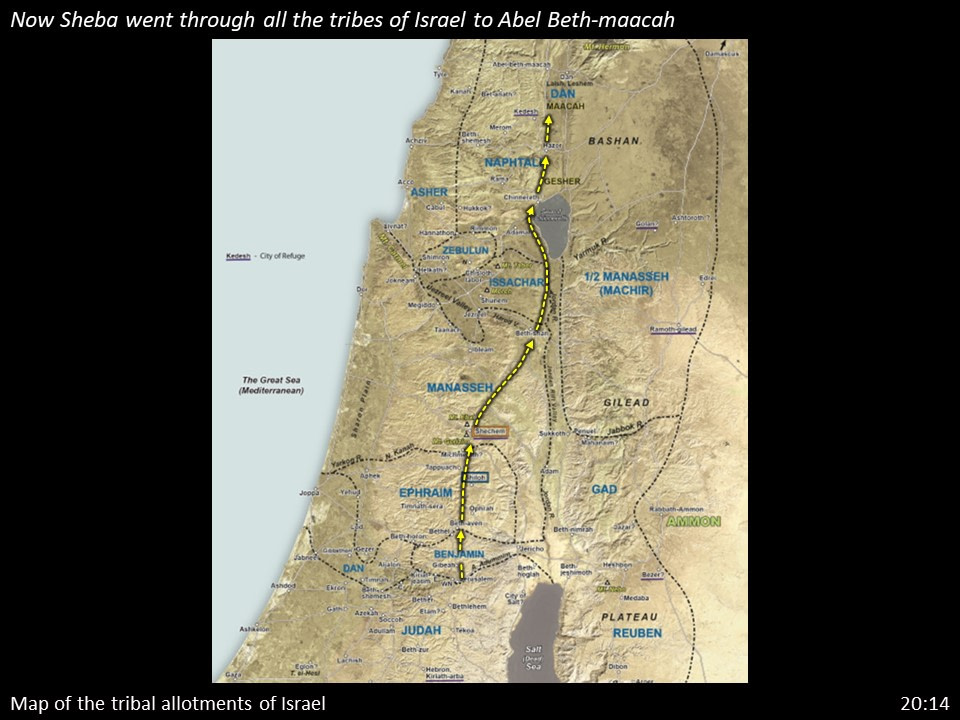
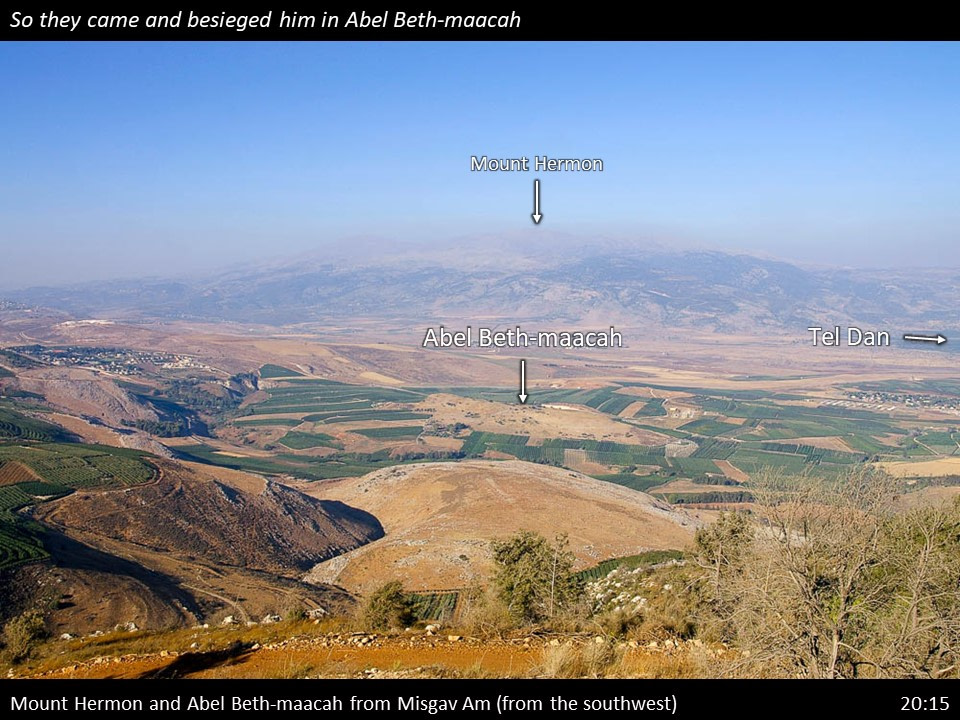
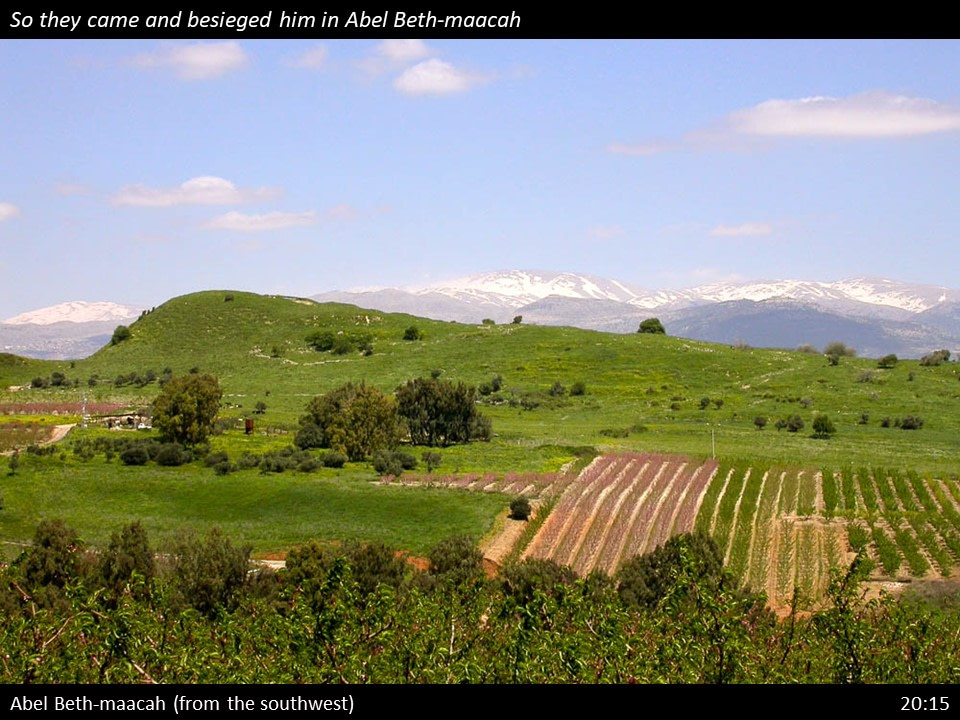
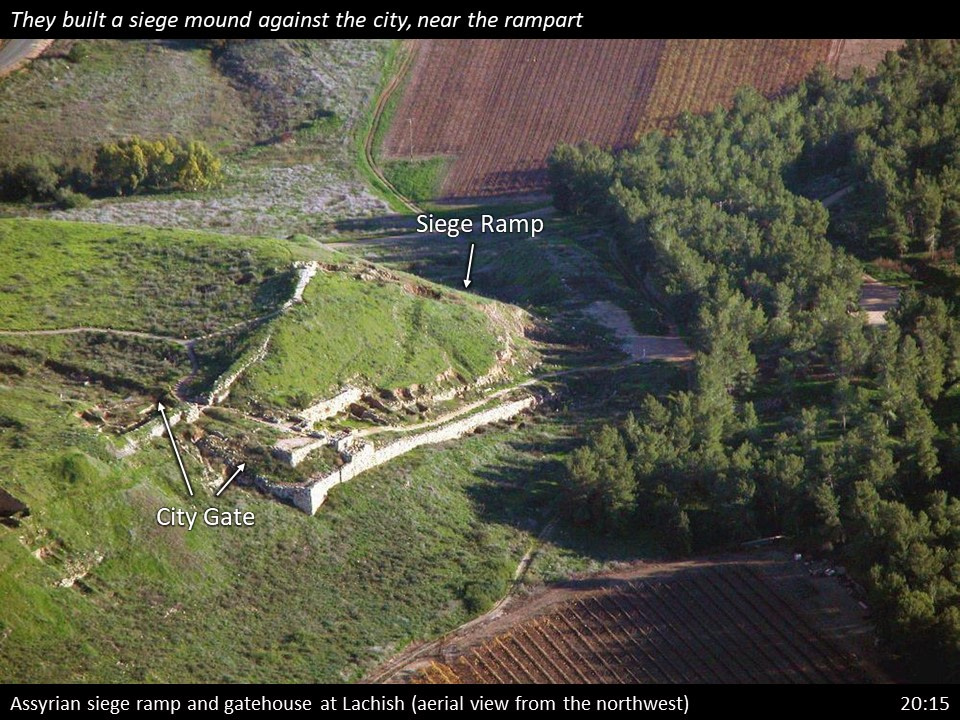
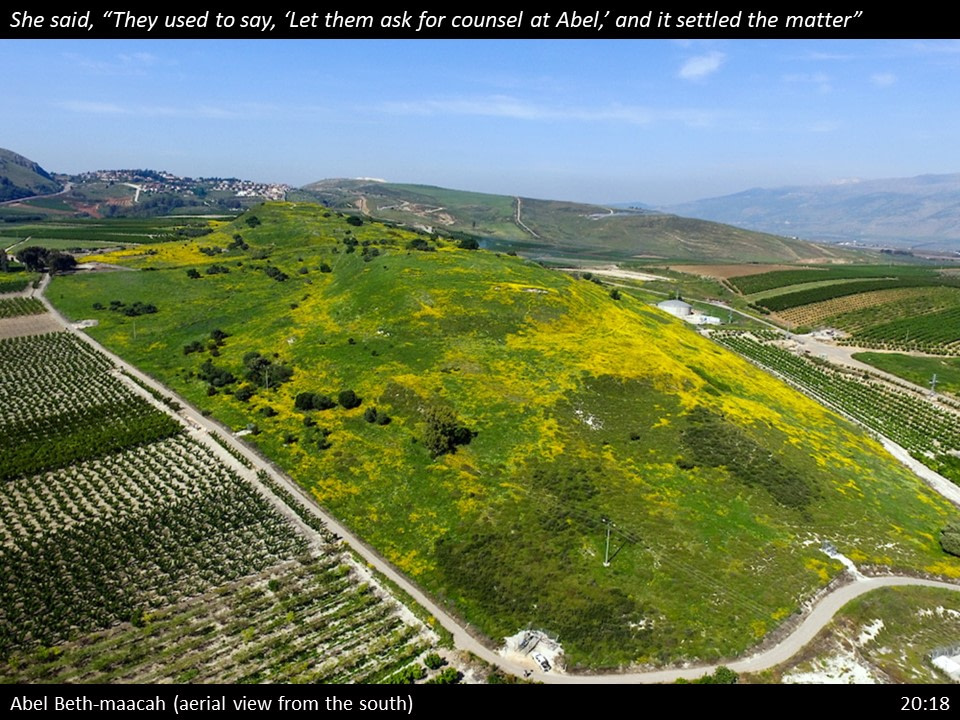
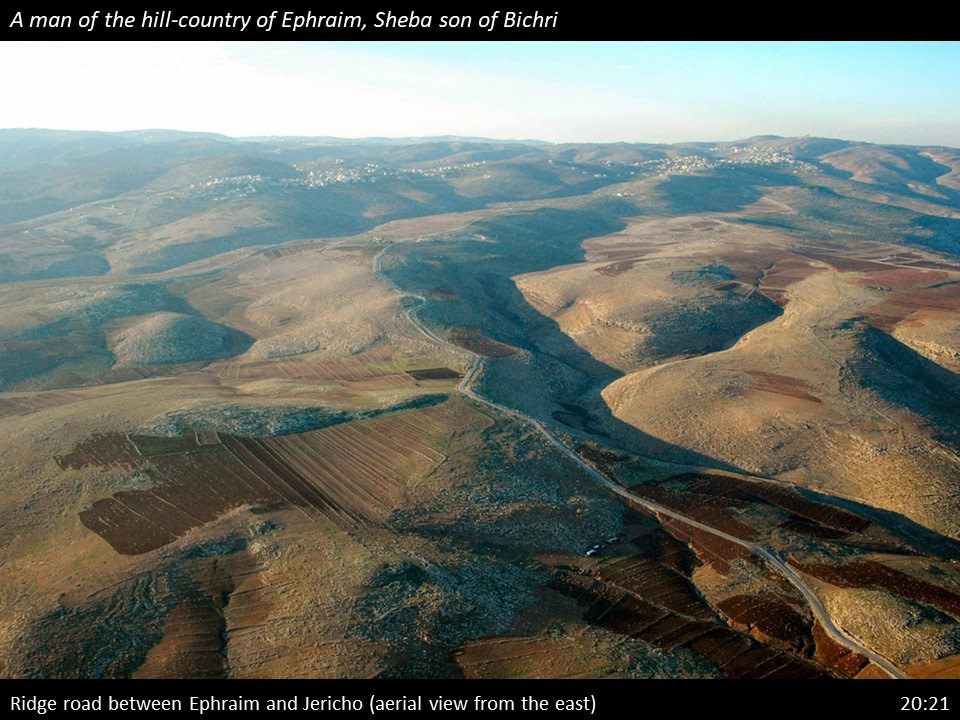
In verses 1-3, the argument between the Judeans and Israelites continued until Sheba, a Benjamite, attempted another coup by rallying the men of Israel.
In verses 4-10, this time, David wisely decided to put the insurrection down.
- He commanded Amasa to gather the army within three days and pursue Sheba.
- When Amasa didn’t take action, David ordered Abishai to take command of the army.
- Abishai took his soldiers, including Joab and his men, the Cherithites, and the Pelethites to pursue Sheba.
- When Joab caught up to Amasa, he pretended to greet him, killed him with his dagger.
Note: Joab and Amasa were cousins. Both were sons of David’s half-sisters (1 Chronicles 2:16-17).
In verses 11-22, Joab took command of the army pursuing Sheba, who fled to the city of Abel of Beth-maacah.
- Joab surrounded the city and laid siege to it.
- An unnamed woman implored Joab not to destroy a city of Israel. Joab said he only wanted Sheba to be turned over to him, and he would leave.
- To save their city from destruction, the people of Abel killed Sheba, cut off his head, and gave it to Joab.
In verses 23-26, Joab assumed command over the entire Israelite army once again. Benaiah was over the Cherithites and Pelethites. Adoram was over the forced labor. Jehoshaphat was the court historian. Sheva was the court secretary. Zadok and Abiathar were priests. Ira was David’s personal priest.
Note: David may have tolerated Joab’s killing of Amasa at the time, but he instructed Solomon to deal with Joab (1 Kings 2:5-6).
Some thoughts for additional consideration:
- David hurt the morale of the people who had been loyal to him by caring more for his slain son than them. In his attempt to reunite the people, he showed favoritism to some, which angered others. That resulted in inter-tribal jealousy and yet another rebellion. Perhaps some of the poor decisions David made through this crisis came about as a result of not seeking the Lord. Often in previous difficulties, we read of David seeking the will of God, but through most of these recent chapters, he acts seemingly on his own.
- Leaders in the midst of crisis have many difficult situations that need to be addressed, and often, there is no single answer that will make everyone happy. I think the learning for us is that while we need to be in a position to restore and forgive those who come against us, we must not neglect the people who remained loyal to us all along! We should also be on our knees before the Lord seeking His wisdom!
2 Samuel 21-24
The last four chapters of 2 Samuel are like an addendum. They are additional information about David’s reign, though not tied chronologically to the rest of the book.
2 Samuel 21
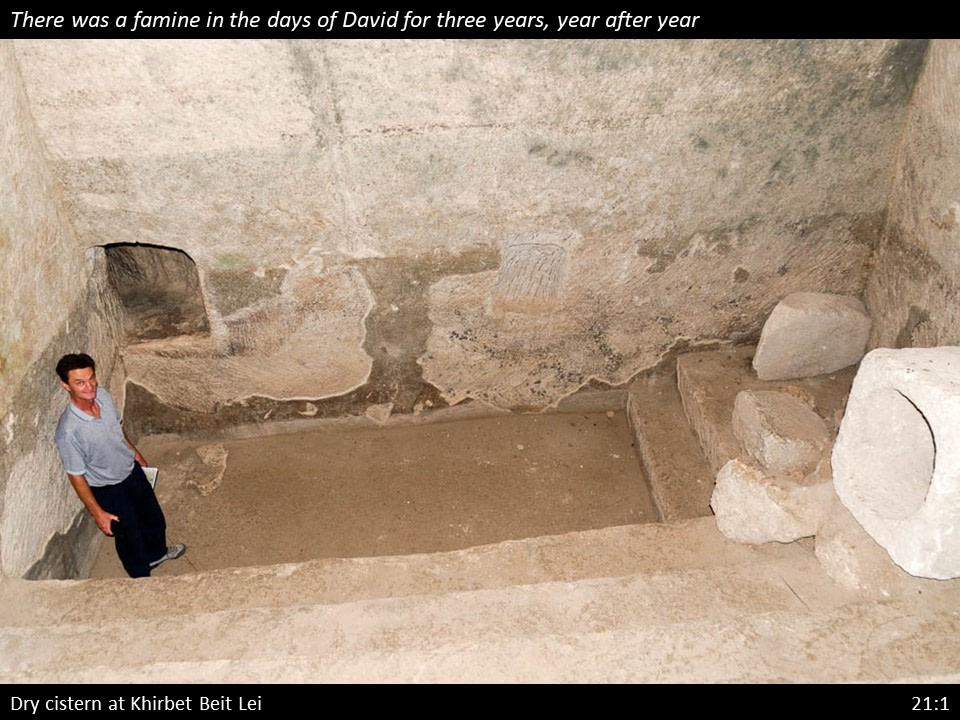
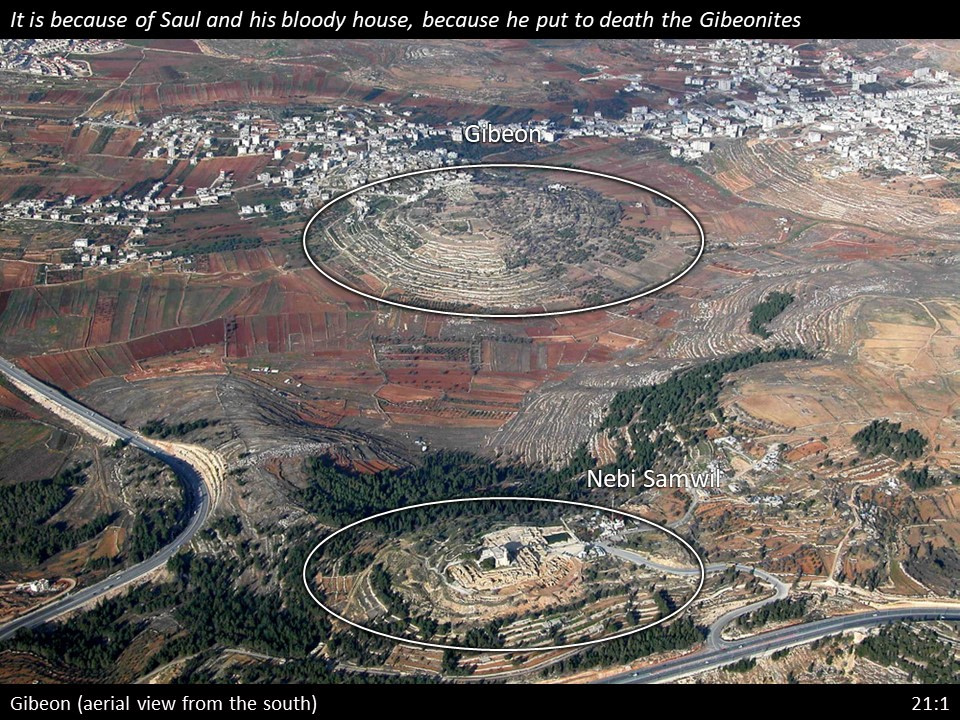
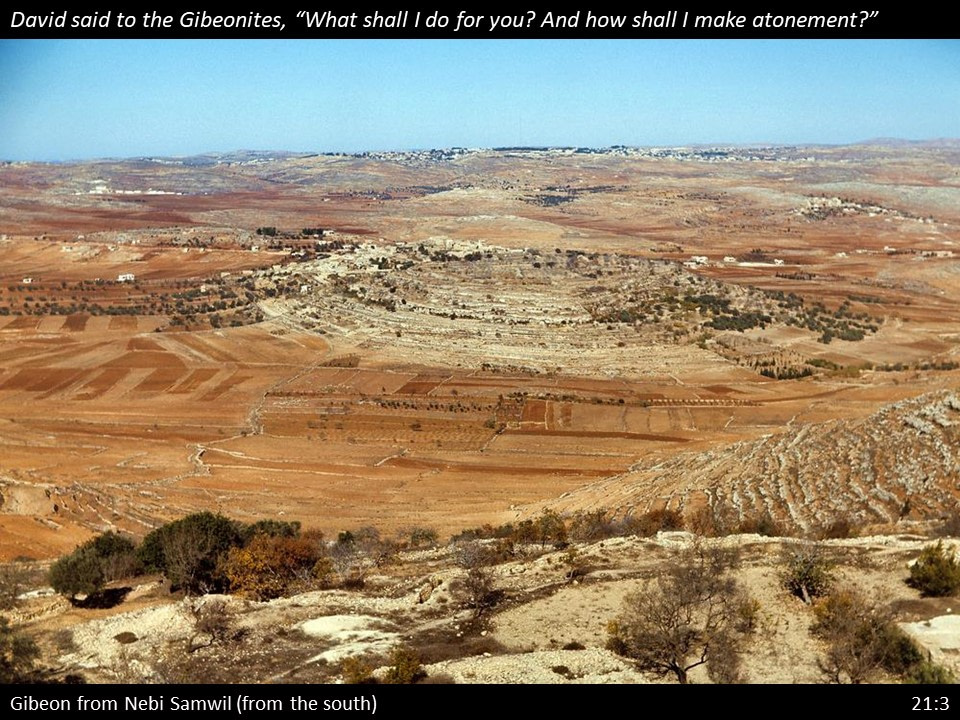
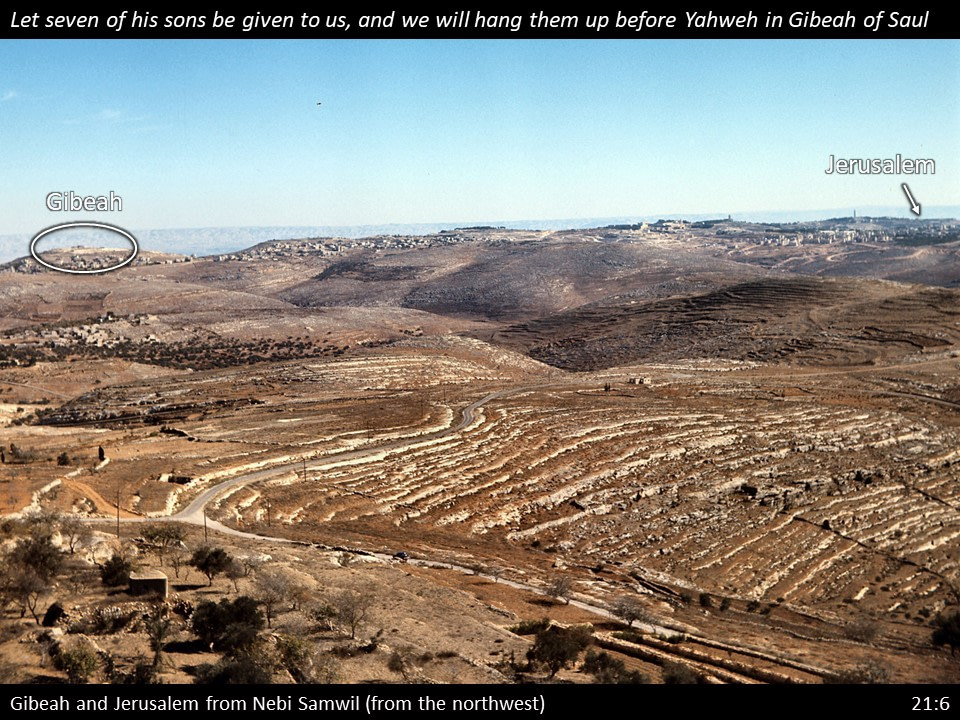
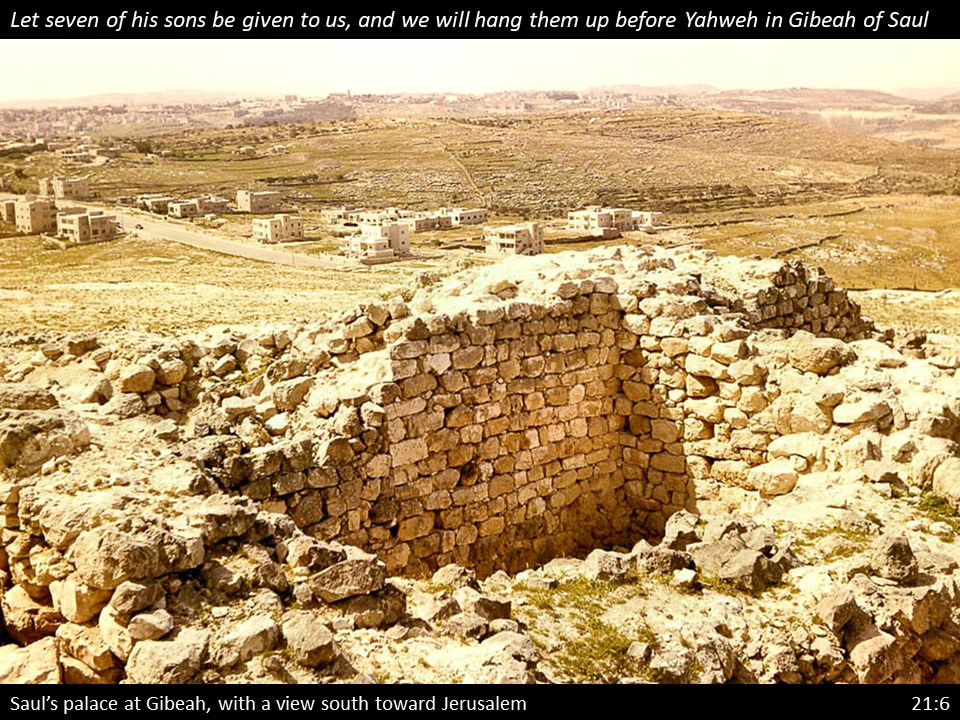

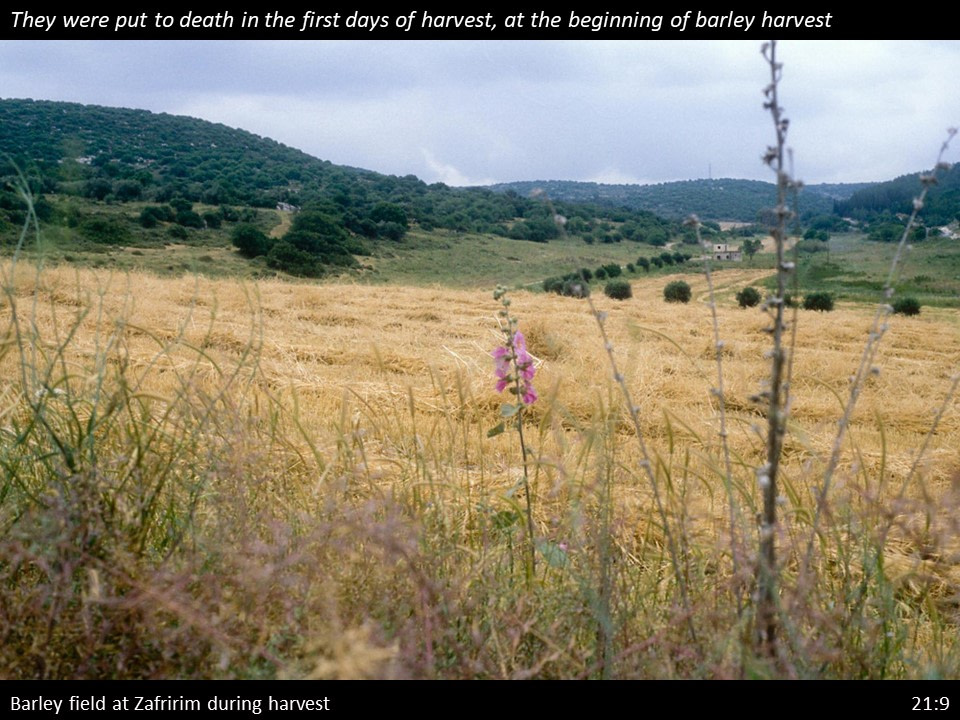

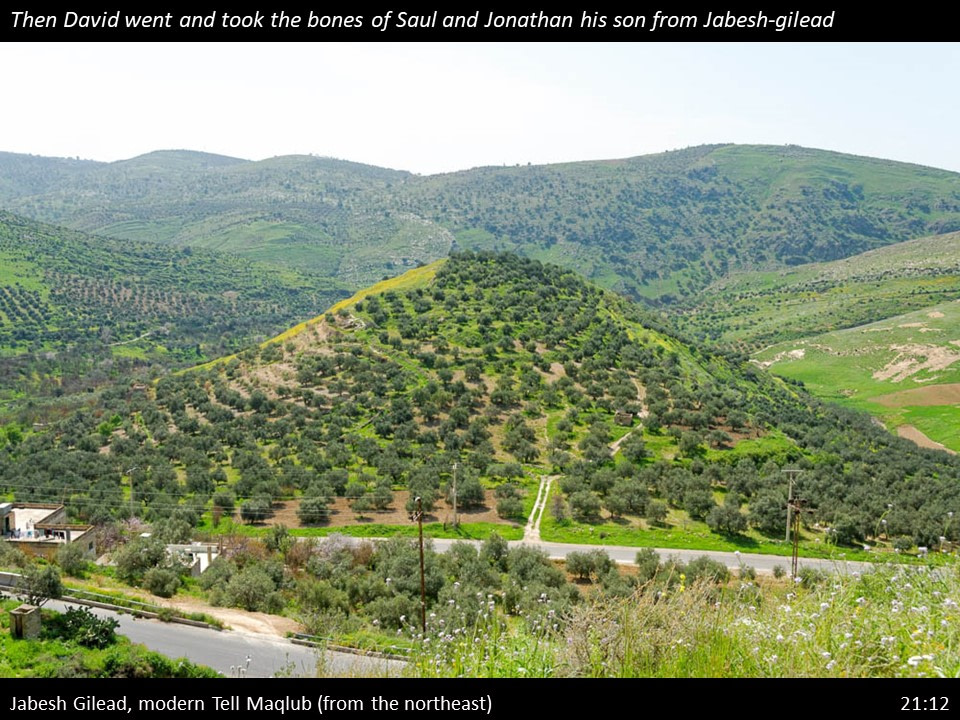
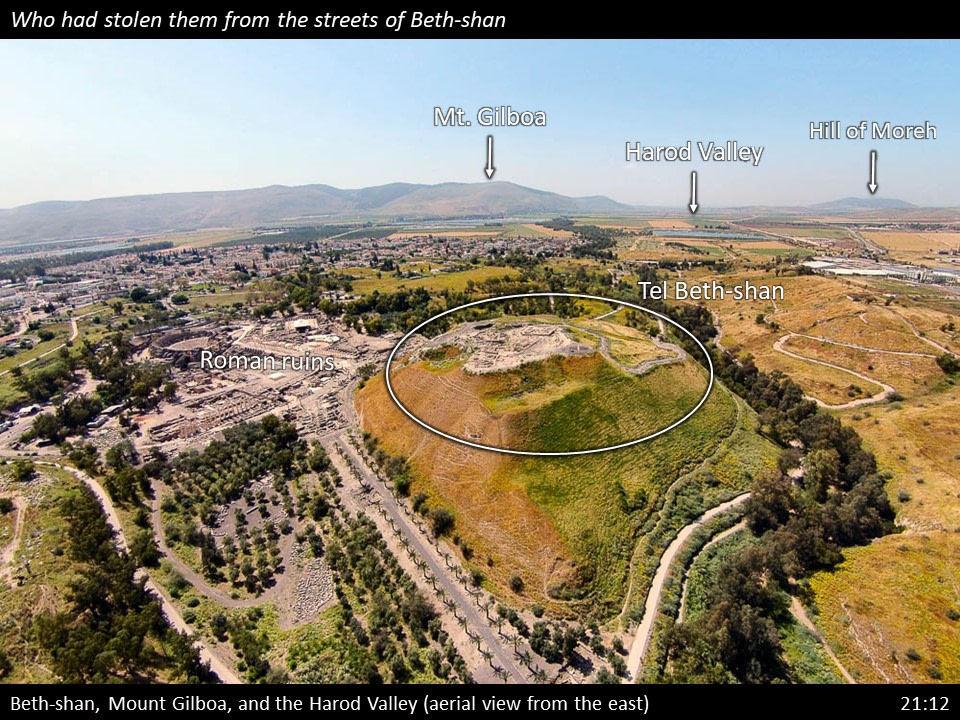
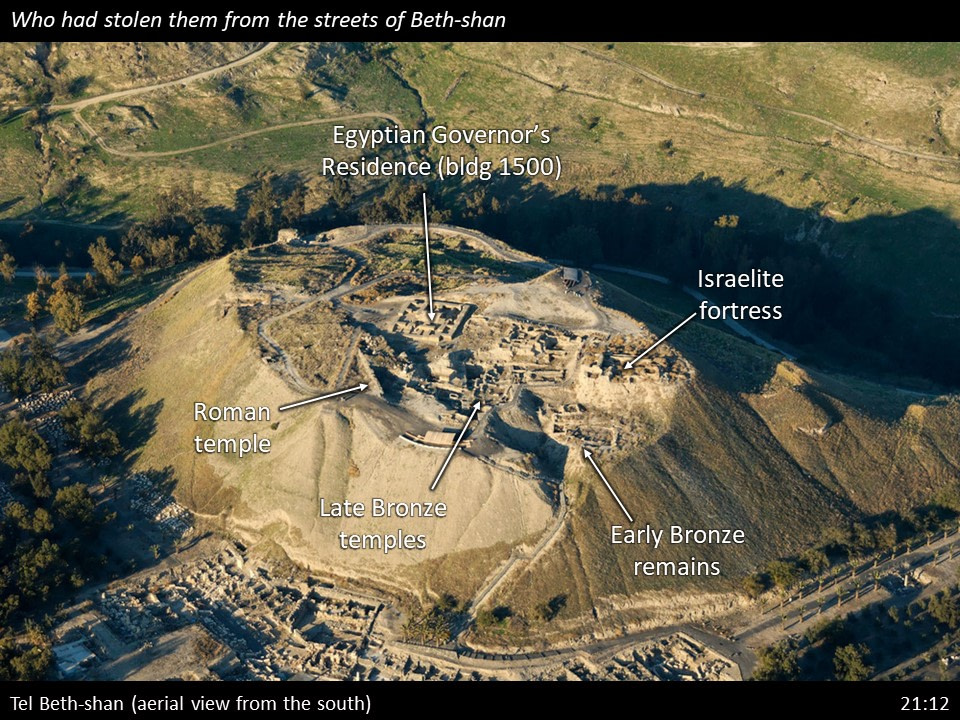
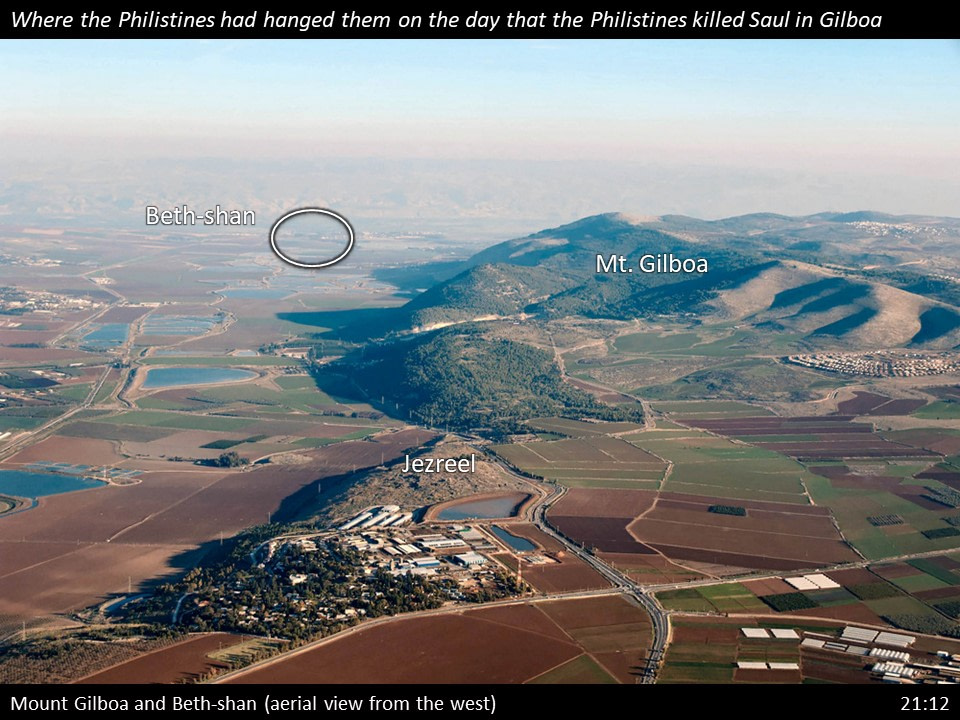


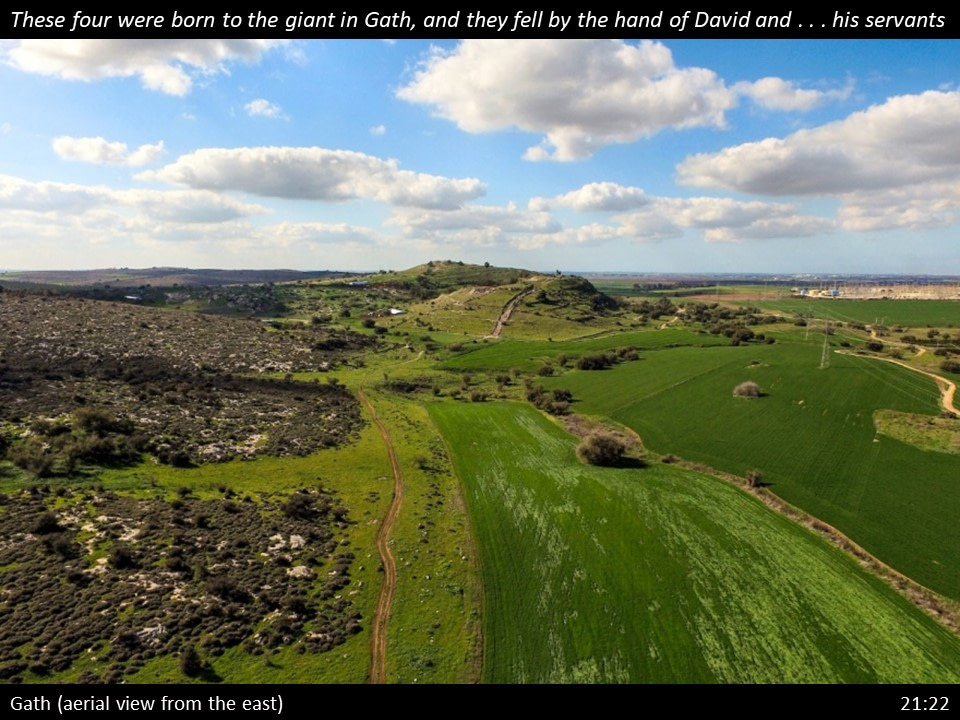
In verses 1-10, a three-year famine in the land caused David to inquire of the Lord, and God told him the famine was a result of Saul having killed some Gibeonites (who were descendants of the Amorites).
- The Gibeonites had remained in the land since the days of Joshua, and the Israelites had promised not to kill them (Joshua 9:3-17).
- Yet Saul had not honored the oath.
- The Gibeonites demanded that seven of Saul’s sons be turned over to them to be hanged.
- David complied, saving Mephibosheth as he had promised Jonathan (1 Samuel 20:15-16).
- The Gibeonites hanged Saul’s sons in Gibeah (Saul’s home town) during the barley harvest (early spring).
In verses 10-14, David gathered together the bodies of the seven sons, and the bones of Saul and Jonathan and buried them in Saul’s father’s tomb. After this, God lifted the curse on the land in answer to David’s prayer.
Note: I wonder why David endured three years of famine in the land before he inquired of the Lord.
In verses 15-22, the Philistines continued to wage war against the Israelites.
- One of the Philistines, a giant, was about to kill David, but David’s nephew Abishai, killed the Philistine.
- Because David was no longer a young man, his men asked him to stay out of the battle so he would not be killed.
- Another battle with the Philistines occurred at Gob, and another battle occurred at Gath.
What did you notice in your study today? Feel free to visit the website and leave a question or a comment.

